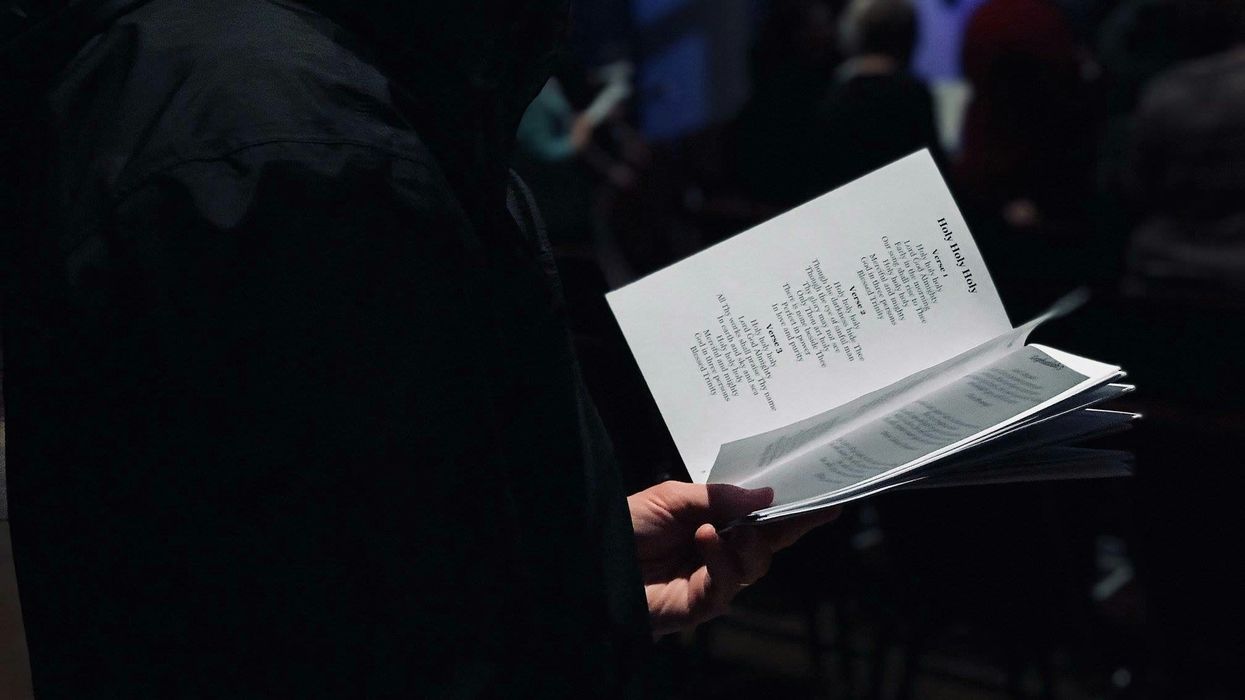At the end of March, the Supreme Court heard arguments in a case about religious freedom. In late April, it heard two more. By summer, the Court could decide to give religious employers another tax break, let religious parents excuse their children from classes that mention queer people, and give religious charter schools access to public funding.
Religious freedom in these cases is about conservatives’ religious right to be exempt from certain laws and taxes. They give a Supreme Court dominated by Republican appointees a chance to carve three new religion-shaped holes in American law.
But is religious freedom only for conservatives? Hardly. The Free Exercise Clause of the Constitution’s First Amendment has protected progressives many times over the past century, including all kinds of religious minorities. Even atheists and agnostics have a well-established right to religious freedom under American law, and spiritual people have it, too.
In 2019, for example, Scott Warren defended himself in federal court against claims that he’d violated U.S. law by leaving food and water for migrants crossing the Sonoran Desert. Warren claimed that his Constitutionally guaranteed right of religious freedom protected his sincerely held spiritual beliefs, which required him to care for those migrants even if it meant breaking the law. His defense was modeled on that of Christian leaders in the 1980s who harbored migrants from federal agents by giving them “sanctuary” in their churches and transporting them to sanctuary churches around the country. Their defense mostly worked, and so did Warren’s.
The Law, Rights & Religion Project (LRRP) described examples of religious freedom supporting progressive causes. The report failed to make waves in part because progressives weren’t ready to embrace their religious freedom. Now, in Trump’s second term, with a conservative Supreme Court firmly in place, likely for decades to come, the calculus has changed. As Adam Liptak noted recently in the New York Times, the Supreme Court has ruled in favor of religious people and groups more than 86 percent of the time since John Roberts became Chief Justice in 2005. If the Court rules for religion in the three cases it’s hearing this spring, that rate will jump to nearly 90 percent. The future is clear: religion is winning.
What does religious freedom look like for progressives? The sanctuary movement has shown us that traditional religious leaders, like ministers and Rabbis, can resist laws they consider unjust on religious grounds. Scott Warren proved that spiritual people have this right, too.
During the first Trump administration, a Catholic chapel in Texas refused to allow the government to build a border wall on its land. In states across the country, we’re seeing religious leaders argue for religious exemptions to abortion bans.
Churches don’t pay taxes, and they don’t have to file financial statements with the IRS. This includes progressive churches. Churches are also exempt from some zoning laws. Last year, California legislators passed Yes In God’s Backyard (YIGBY), a law that allows churches to build bigger, denser affordable housing in places where other people can’t.
Atheists, agnostics, and spiritual people also have the right to form religious organizations that can use these exemptions. The courts and the IRS have never challenged that right significantly. The LRRP report highlights many more examples.
Not all of these strategies will work, and yes, this Supreme Court seems to favor Christians over religious minorities. Christians embraced a tenuous religious freedom strategy en masse to resist vaccine mandates, and it was effective even though Christian doctrine has little to say about vaccines.
The fact is that progressives have hardly even tried to exercise their religious freedom because many remain wary of religion. Sociologists have shown that religion’s association with conservative politics has caused a lot of progressives to leave religion altogether.
In my research, I’ve found that nonreligious people can have a strong, visceral dislike for religion. They associate it with authority, groupthink, and dogma rather than community, tradition, and progressive politics. For some, their dislike stems from trauma, including physical and emotional abuse. These are legitimate feelings that are important to acknowledge. It’s also important to remember that not all religions are the same, and not all religious people are conservative. There are even progressive evangelicals, though fewer than there used to be.
For now, progressives are likely to have a surprising advantage. The Supreme Court needs to maintain the appearance of fairness while facing criticism from long-time observers for being too political. If the Court wants to give religious freedom to closely held corporations like Hobby Lobby, then it would look that much worse trying to take it away from atheists and religious minorities who’ve had it for many decades.
Religious freedom is stronger than ever, and it’ll grow in the years ahead. Now’s the time for progressives to get over our purity politics and our bias against religion. Now’s the time to start exercising our religious freedom.
Joseph Blankholm is a professor of Religious Studies at the University of California, Santa Barbara and a Public Voices fellow with The OpEd Project.




















Trump & Hegseth gave Mark Kelly a huge 2028 gift